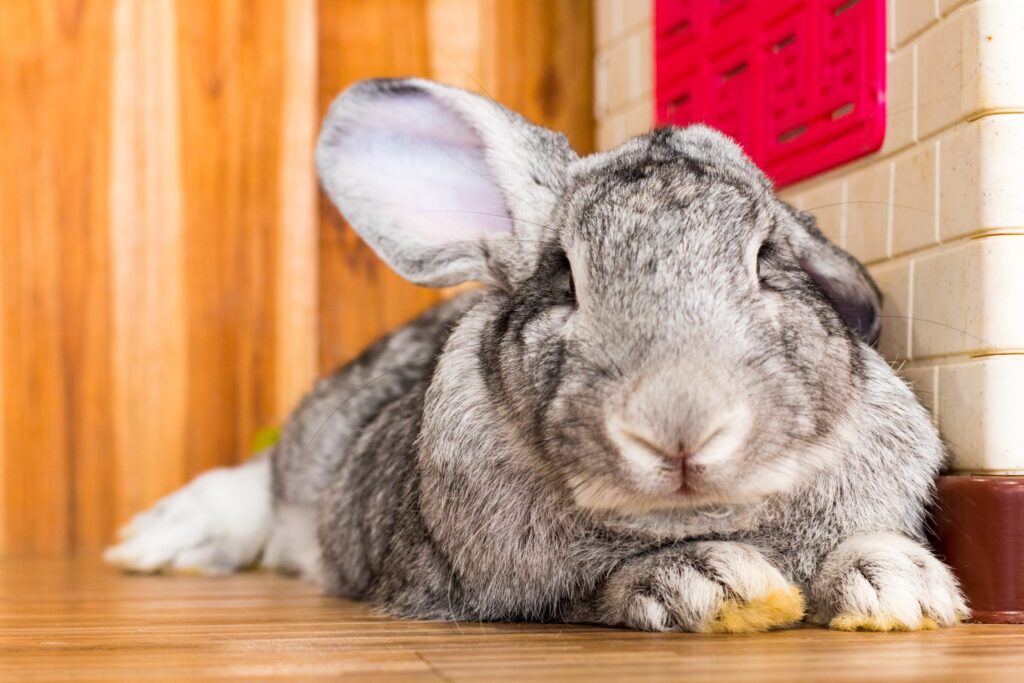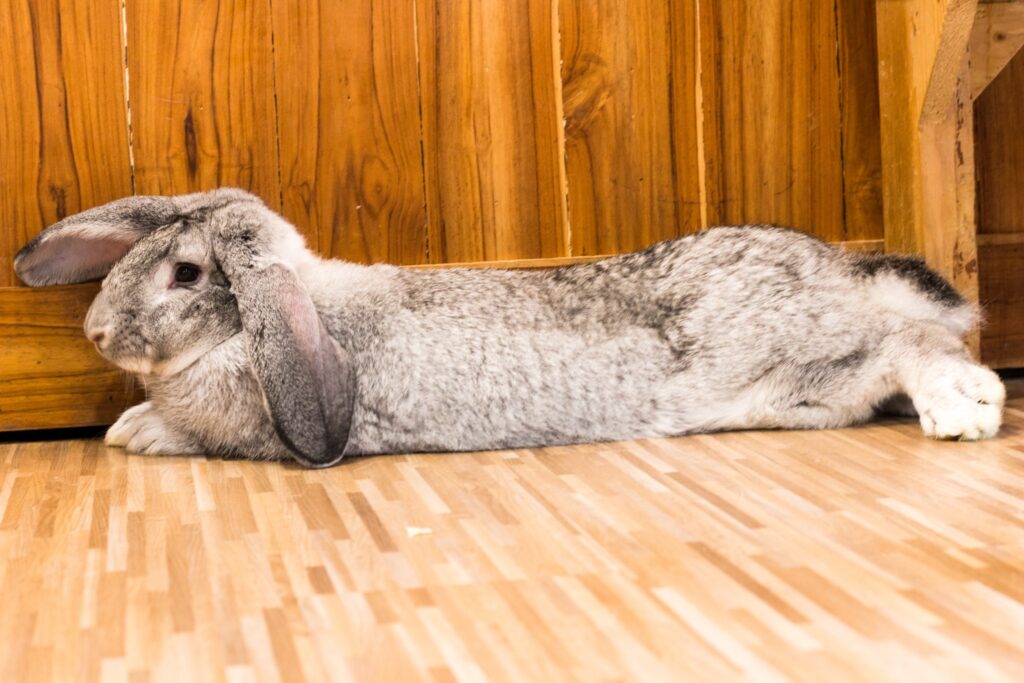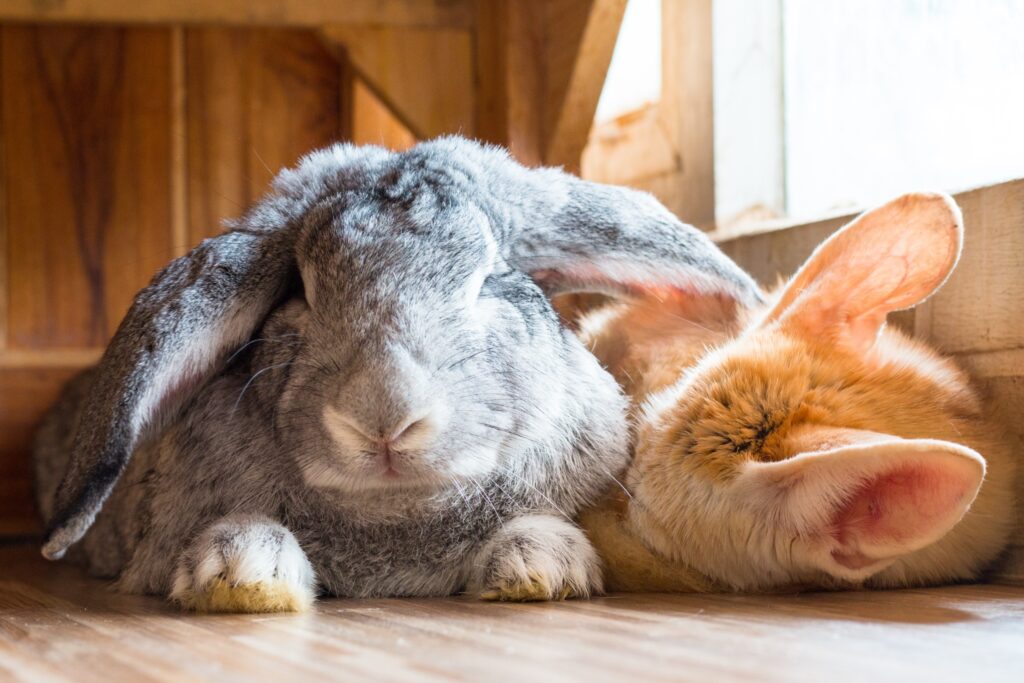Do Flemish Giant Rabbits Bite? Understand The Truth
Flemish Giant Rabbits can bite. While they are generally known for their docile and friendly temperament, they may bite when frightened, stressed, or in pain. Moreover, like other rabbits, they may also nip playfully or chew on objects as part of their natural behavior.

To reduce the risk of being bitten, handling Flemish Giant Rabbits gently and with respect is essential to ensure they feel safe and comfortable. Regular socialization, sufficient living space, and proper care will minimize aggressive behavior.
The Behavior of Flemish Giant Rabbits
Temperament
Flemish Giant rabbits are known for their gentle and docile nature. They are generally friendly and make great pets for families with children. However, like other pets, they require proper handling and care to ensure their well-being. They may become skittish if handled roughly, so handling them with care and gentleness is important.
Aggressiveness
While Flemish Giant rabbits are generally friendly and docile, they may become aggressive if they feel threatened or unable to escape. This may result in biting or scratching. Supervising young children when they are near or playing with these big rabbits is important to prevent any harm.
To avoid aggression in Flemish Giant rabbits, providing them with enough space and exercise is important. They need plenty of room to move around and play. They also need mental stimulation, such as toys and puzzles, to keep them entertained and prevent boredom.
Flemish Giant rabbits are gentle and friendly pets that make great family companions. However, like other pets, they require proper handling and care to ensure their well-being. Providing them with enough space, exercise, and mental stimulation is important to prevent aggressive behavior.
Reasons Why Flemish Giant Rabbits Bite
Territorial Behavior

Flemish Giant rabbits can be territorial creatures, especially when they feel their space is invaded. They may bite if they feel threatened by another rabbit or human. This behavior is more common in unneutered males who may feel the need to protect their territory.
Fear
Rabbits may bite if they feel scared or threatened. This can happen if they are in a new environment or encounter a new person or animal they are not familiar with. In these situations, the rabbit may feel like biting is the only way to protect itself.
Pain or Discomfort
If a rabbit is in pain or discomfort, it may bite to communicate its distress. This can happen if the rabbit is suffering from an injury or illness. Handling rabbits gently and carefully is important to avoid causing them any pain or discomfort.
Hormonal Changes
Hormonal changes can also cause rabbits to bite. This is especially true for unneutered males who may become more aggressive during breeding season. Female rabbits may also become more aggressive if they are pregnant or nursing.
Lack of Socialization
Rabbits not properly socialized may also be more likely to bite. It is important to handle rabbits from a young age to get them used to human touch. Rabbits not used to being handled may become scared or defensive and bite as a result.
Preventing Flemish Giant Rabbit Bites
Flemish Giant rabbits are generally docile and friendly pets but can bite if they feel threatened or scared. To prevent bites, training and socializing your rabbit, handling them carefully, and providing a safe environment is important.
Training and Socialization
Training and socialization are crucial for preventing bites. Flemish Giants should be handled gently from a young age to get them used to human touch. They should also be exposed to different people, animals, and environments to prevent fear and aggression.
Training can involve positive reinforcement, such as treats and praise, to encourage good behavior. Socialization can involve supervised playtime with other rabbits or pets and exposure to new sights, sounds, and smells.
Handling Techniques
Handling a Flemish Giant rabbit requires care and attention. They have powerful hind legs and can kick and scratch if threatened. To handle them safely, supporting their weight, avoiding sudden movements, and keeping them calm is important.
One technique is to scoop them up from underneath, supporting their body and hindquarters with one hand and their front legs with the other. Another technique is to let them come to you, offering a hand for them to sniff and then gently picking them up.
Providing a Safe Environment
A safe environment prevents bites and ensures your rabbit’s health and well-being. Flemish Giants should have a spacious cage or enclosure with plenty of room to move around and stretch their legs. They should also have access to fresh water, hay, and vegetables.
Avoid overcrowding, loud noises, and sudden movements to prevent injury and stress. Provide hiding places and toys to keep them entertained and stimulated.
Preventing Flemish Giant rabbit bites requires training and socialization, careful handling techniques, and a safe environment. You can enjoy a happy and healthy relationship with your furry friend with patience, attention, and care.
What to do if bitten by a Flemish Giant rabbit

If a Flemish Giant rabbit has bitten you, taking appropriate measures to prevent infection and ensure proper healing is important. Here are some steps to take:
First-aid measures
- Wash the wound thoroughly with soap and water.
- Apply an antiseptic solution or cream to the wound.
- Cover the wound with a sterile bandage or dressing.
- Elevate the affected area to reduce swelling.
Seeking veterinary care
If the wound is deep, bleeding heavily, or shows signs of infection, it is important to seek veterinary care immediately. Signs of infection include redness, swelling, warmth, and pus.
Your veterinarian may recommend antibiotics or other treatments to prevent or treat the infection. They may also recommend a tetanus shot if you have not had one recently.
It is important to monitor the wound for signs of infection and follow your veterinarian’s instructions for care and follow-up.
Remember, prevention is the best medicine. To reduce the risk of being bitten by a Flemish Giant rabbit, it is important to handle them gently and carefully. Avoid sudden movements and loud noises that may startle the rabbit. Always supervise children when they are interacting with rabbits.
In conclusion, if a Flemish Giant rabbit bites you, take appropriate first aid measures and seek veterinary care. With proper care, most wounds will heal without complications.